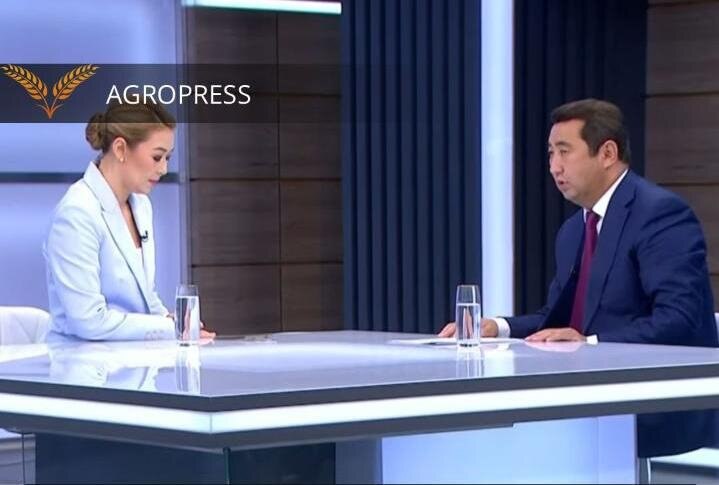BISHKEK (TCA) — At its meeting on February 10, the parliamentary faction of pro-presidential Social Democratic Party of Kyrgyzstan (SDPK) said the work of the Ministry of Economy is unsatisfactory.
By decree of the Interim Government established after the change of power in April 2010, 47 facilities including shares in companies, real estate, land, and transportation facilities were nationalized and a Government program was adopted to effectively manage the nationalized facilities.
Unprofitable enterprises
The SDPK meeting discussed problems related to the nationalized facilities, as well as the state property in general. The parliamentary faction’s leader Isa Omurkulov said the State Property Management Fund is overloaded with duties and performs additional, not inherent functions. He criticized the Economy Ministry for “not submitting an analysis of the operation activity of the state-owned enterprises, their efficiency and prospects”. He spoke about factories and industrial enterprises that maintain municipal and national budgets.
“Has anyone from the Ministry visited them to see what’s going on there?” Omurkulov asked. He advised Ministry officials to visit the Khaidarkan Mercury Plant and Kadamjai Antimony Plant, located in the south of the country. Today, mercury is not in demand but antimony is. “Why does the Ministry not examine those enterprises to check their efficiency?” Omurkulov added.
He also disagreed with his colleagues suggesting passing nationalized recreation resorts over to some state agencies. To manage those facilities, the State should hire staff, pay utility bills, and maintain the facilities, which would mean additional costs for the state budget, Omurkulov said, speaking for selling those recreation resorts.
“We have got used to the idea that the State is a poor manager. The state-owned enterprises are managed by ministries and government agencies, the State Property Management Fund, boards of directors, and supervisory boards. There are many managers but such businesses are unprofitable and many have ceased operation. Too many cooks spoil the broth,” Omurkulov concluded.
After the discussion, the SDPK faction supported Omurkulov’s suggestion to recognize the Economy Ministry’s management of the nationalized facilities unsatisfactory.
The state ownership is inefficient, Omurkulov said. There are many companies with state shares in the country, but they are ineffective and face many problems.
“If a state-owned enterprise is unprofitable, it is necessary to dismiss its head,” MP Azamat Arapbaev said. “The salaries of executives of state-owned enterprises should not be the same and should depend on the income of state-owned enterprises.”
Public debt
According to the Finance Ministry, Kyrgyzstan’s public debt increased by $300 million last year. The growth of the external debt shows a lack of financial thinking and planning by the State. The country is heavily overstaffed with public officials, and it is necessary to reduce their number fivefold to reduce the public debt, expert Iskender Sharsheev believes.
Citizens who work and pay taxes bring in income to the state budget while the budget money is spent for civil servants’ salaries.
In many countries, both developed and developing ones, the number of state officers per capita is significantly lower than in Kyrgyzstan, where over a million employees (of the country’s 2.5 million economically active population) depend on the state budget money.
Kyrgyzstan needs a small but effective state apparatus to plan the state budget based mainly on the income from taxes and remittances from labor migrants.
The Law “On public and non-public debt of the Kyrgyz Republic” provides that the country’s foreign debt should not exceed 60 percent of GDP. The authorities believe that if the threshold is not exceeded, they can borrow as much as possible.
Even the Finance Ministry, the state body responsible for monitoring the public debt, does not warn of the danger of increasing borrowings. Experts explain it by the fact that the term of the current Government will soon expire in connection with the upcoming presidential elections this coming fall, and it needs to provide itself with political dividends.
According to experts, repayment of public debts is easier in countries with better governance. It is incorrect to compare Kyrgyzstan’s debt with the debts of countries with strong economies and good governance such as Japan, EU countries, and the USA, expert Elnura Ibraimova said. It is also incorrect to compare the ratio of public debt per capita in Kyrgyzstan with that in Russia and Kazakhstan, the strongest partners in the Eurasian Economic Union. These countries have different structure of their economies and different capacities to repay public debts.
Boosting the state budget
The State needs money to pay pensions to the elderly and wages to public sector employees. There are many ways to boost the state budget and increase budget revenues, but the Kyrgyz Government only relies on tax collection.
There are mainly small businesses in Kyrgyzstan and their cost of production is higher than that of large factories. Therefore, local products cannot compete in external markets. As a result, small companies and entire economic sectors, such as agriculture, suffer from small-scale production. Due to the lack of developed processing industry, farmers have to sell their raw products for next to nothing. Kyrgyz producers lose to foreign competitors supported by the state.
Authorities in Kyrgyzstan like to report on how many products have been produced and how many hectares have been sown with certain crops. However, optimistic reports are not always truthful and statistics cannot improve the economic situation in the country, experts say.








